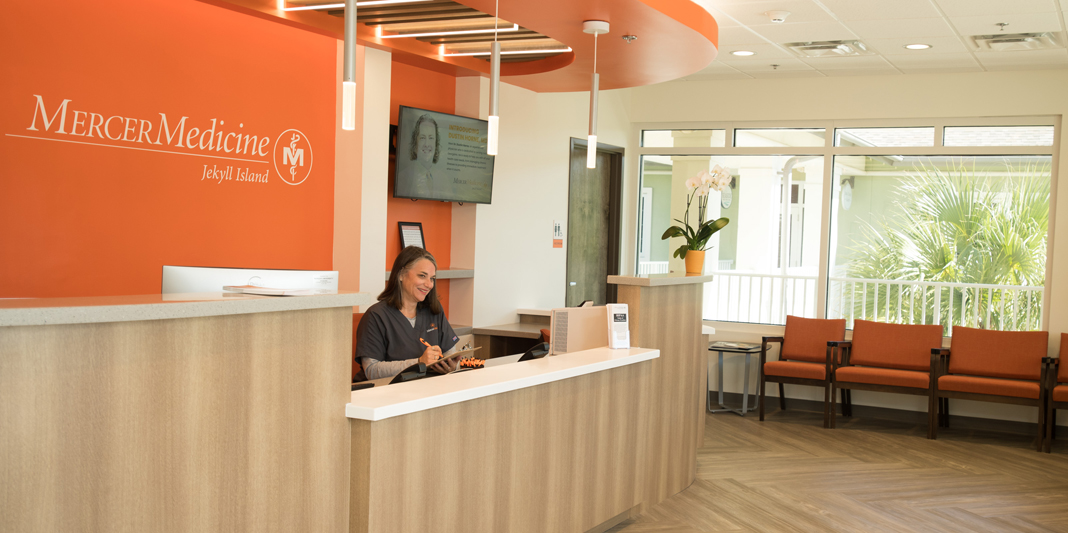Exploring The Impact Of Mercer Medicine On Healthcare
Mercer Medicine has emerged as a pivotal institution in the landscape of modern healthcare, blending education, research, and patient care to provide comprehensive medical solutions. As a key component of Mercer University, this innovative medical facility stands out for its commitment to serving communities while training the next generation of healthcare professionals. With a focus on primary care, Mercer Medicine aims not only to treat patients but also to address the broader health challenges faced by diverse populations.
In an era where healthcare needs are constantly evolving, Mercer Medicine has positioned itself as a leader in addressing these challenges through a multifaceted approach. By integrating education and community outreach, this institution not only enhances medical training but also ensures that patients receive the most effective care possible. The dedication of Mercer Medicine to fostering health equity and access to care is evident in its various programs and initiatives.
This article delves deeper into Mercer Medicine, examining its role in healthcare, the services it provides, and the overarching impact it has on both patients and future healthcare professionals. With a focus on innovation and quality care, Mercer Medicine is paving the way for a healthier future, making it a topic of interest for anyone passionate about the intersection of medicine and community service.
What Services Does Mercer Medicine Provide?
Mercer Medicine offers a wide array of services designed to meet the healthcare needs of patients across different demographics. Some of the key services include:
- Primary Care
- Preventive Care
- Chronic Disease Management
- Specialist Referrals
- Health Education and Counseling
These services are aimed at promoting long-term health and wellness, ensuring that patients receive comprehensive care tailored to their individual needs.
How is Mercer Medicine Contributing to Medical Education?
Mercer Medicine plays a crucial role in the education and training of future healthcare professionals. By providing students with hands-on experience in a real-world clinical setting, it ensures that they are well-prepared to face the challenges of modern medicine. Key contributions include:
- Clinical rotations for medical students
- Residency programs in various specialties
- Continuing medical education for practicing physicians
This emphasis on education not only enhances the skills of future doctors but also improves patient care outcomes.
What Makes Mercer Medicine Unique?
One of the distinguishing features of Mercer Medicine is its commitment to community engagement. The institution actively seeks to understand the health needs of the populations it serves, leading to the development of targeted programs that address specific health issues. This community-oriented approach sets Mercer Medicine apart from other healthcare providers.
What Are the Goals of Mercer Medicine?
Mercer Medicine has outlined several goals that guide its operations and initiatives:
- Enhancing access to quality healthcare
- Improving health outcomes for underserved populations
- Fostering a culture of research and innovation
- Training compassionate and skilled healthcare providers
These goals reflect the institution's dedication to not only treating illness but also promoting overall health and well-being.
Who Are the Key Figures Behind Mercer Medicine?
Mercer Medicine is led by a team of experienced healthcare professionals and educators committed to advancing the field of medicine. Their collaborative efforts ensure that the institution remains at the forefront of medical education and patient care.
| Name | Position | Background |
|---|---|---|
| Dr. William A. F. McGowan | Dean, Mercer University School of Medicine | Expert in Family Medicine with over 20 years of experience |
| Dr. Jennifer L. Smith | Director of Clinical Services | Specialist in Internal Medicine with a focus on preventive care |
| Dr. Robert J. Anderson | Chief Medical Officer | Leader in healthcare innovation and patient safety initiatives |
How Is Mercer Medicine Addressing Health Disparities?
Mercer Medicine recognizes that health disparities exist within communities and is actively working to address these issues. Through various outreach programs, the institution aims to provide education, resources, and services to those in need. Initiatives include:
- Mobile health clinics
- Community health fairs
- Partnerships with local organizations
By reaching out to underserved populations, Mercer Medicine seeks to create a more equitable healthcare system.
What Future Developments Can We Expect from Mercer Medicine?
The future of Mercer Medicine looks promising, with ongoing efforts to expand services, enhance educational programs, and increase community engagement. Potential developments may include:
- Expansion of telemedicine services
- New partnerships with healthcare organizations
- Increased research funding for innovative healthcare solutions
As Mercer Medicine continues to evolve, it remains dedicated to its mission of improving health outcomes for all.
Conclusion: The Legacy of Mercer Medicine
In conclusion, Mercer Medicine stands as a beacon of hope and innovation in the healthcare landscape. Its commitment to education, community engagement, and quality care sets a high standard for medical institutions. As Mercer Medicine continues to grow and adapt to the changing healthcare environment, its impact on patients, students, and communities will undoubtedly be profound and lasting. The institution exemplifies the potential of combining medical education with community service, making it a vital player in shaping the future of healthcare.
Also Read
Article Recommendations



ncG1vNJzZmivp6x7tMHRr6CvmZynsrS71KuanqtemLyue9WiqZqko6q9pr7SrZirq2Nkuqa%2Bwp6pZqWVmbaktc2eZaGsnaE%3D
